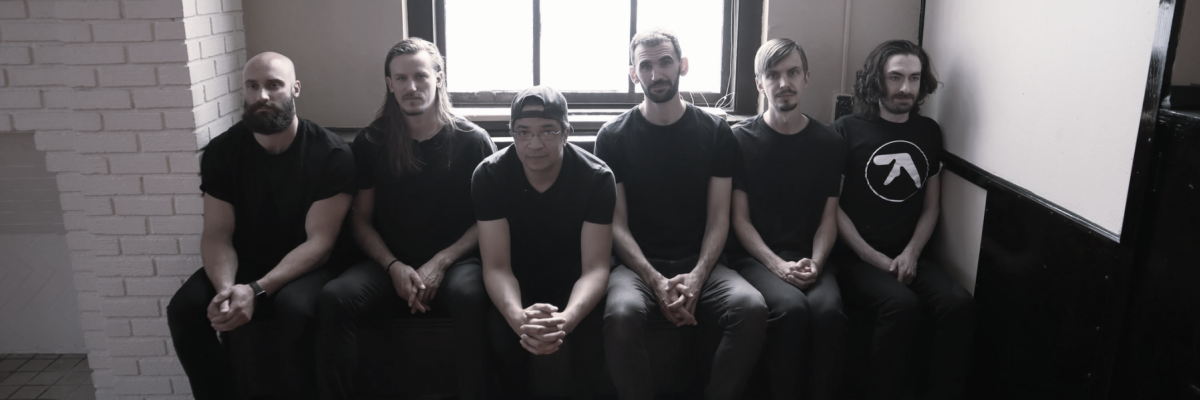
TRACE MOUNTAINS

“And you’re off into the burning blue” songwriter Dave Benton sings on “Ponies,” the centerpiece of Trace Mountains’ fourth full-length album Into the Burning Blue. Decorated with retro textures and violet flowers, the album begins with the crackle of a fire, as if something is burning and hatching into a new form. As Benton grappled with the end of an 8-year romantic relationship, songs were pouring out of him in quick succession, often urgently before he had logically processed the emotions himself.
Collectively, the songs are imbued with a spectrum of weighted emotions, but the blue continued to burn, with each song adopting its respective hue — a violet reclaiming of passion, a deep sea blue of sorrow, the sky blue moments of relief and liberation when he comes up for air and sees hope on the horizon. The pressure of this period crystallized Benton’s adventurous spirit and self-renewal as he embraced new high-fidelity sounds and conviction. Writing routinely over a Roland CR-68 drum machine and enamored with the dramatic precision of 80s music, Benton enlisted Craig Hendrix (Japanese Breakfast) to bring his indie rock to immersive new heights.
Out of Hendrix’s Philadelphia studio “The Well,” the two employed synth-laden, reverberating atmospheres that enter the frame like layers of supernatural silk. The end result is a pensive and playful collection of songs that gallop along Fleetwood Mac pop grooves with sharp melodies and signature 80s gated snare (á la Phil Collins). The album still tumbles through Benton’s endearing observations, maintaining the candor that’s drawn people to his songwriting since his early work with indie rock band LVL UP.
Opener “In A Dream” best encapsulates Benton’s movement through the darker shades of blue. Spanning seven minutes over a deep synth beat, the song follows Benton through a frantic nighttime bike ride as he peers through the windows of a suburban capitalist America, as well as the windows of his own mind. When an overlapping inspiration of David Lynch’s noir thriller Blue Velvet and Bruce Springsteen’s 1987 album Tunnel of Love coalesced, Benton set out to create an ominous world driven by synth leads and his stream of consciousness. The apex of the song is a triumphant exhale. “We wanted that moment to feel like coming out of a dark tunnel,” Benton remembers. “I think we achieved it.”
Similar sensations of eerie acceleration come from “Crawling Back To You,” the first
song written for the record while Benton was still in his relationship, restlessly approaching his deepest shade of blue. Propelled by a hypnotic bass line, the song speeds by as Benton explores the perfect storm of necessary conflict and conflict-avoidance in romantic relationships. It served as a vessel to himself: “I was really in complete denial about what the song is actually about. I've noticed a few instances where things that I'm feeling but not consciously thinking come out in my songs, and this is one of them.”
“Hard to Accept” and “Ponies” best represent the fusion of Trace Mountains sound from past and present. Benton’s lo-fi pop tendencies become clearer pathways, embellished by the impressive cast of collaborators he corralled to showcase his songwriting. Vocalist Jill Ryan (of Great Time) adds breezy harmonies and a sprightly flute solo on “Hard to Accept.” Meg Duffy (of Hand Habits) seals “Ponies” to a tight close with a distorted guitar solo that careens around Benton’s vocals. Guitarists Jim Hill (Slight Of) and Josh Marré (Blue Ranger) made their marks all throughout the album with e-bow and electric licks. Logan Roth (Slaughter Beach, Dog) played synthesizers and piano solos that bring a Bruce Hornsby vitality to Benton’s guitar-driven musings.
“Ponies” introduces Benton’s first glimpse of fresh air and acceptance. As the lyrical crux of the album, it builds into its final chorus like a racing heart, with Benton reflecting: “you just don’t know what there could be left to do / you tried, you did the best you could / but you’re off into the burning blue / you’re riding true like the ponies do.” As the album continues, you start to feel him come up for more air. On the lush and downtempo “Melt” he blooms into his violet shade as he pens an intimate expression of love and desire. On the twangy “Gone & Done” he begins candidly with “hey now, look what you’ve gone and done, caught me out having fun.”
With all the new production choices on the album, it was important to Benton that each song had the integrity to stand alone in a stripped-back setting. Allowing Hendrix to take the reins on the album’s adornments, Benton was able to create strong and simplistic foundations. He recalls the Tom Petty-inspired “Friend” as his proudest and most honest moment. “It feels like a song that could stand on its own without any of the extra arrangement or accompaniment. That's an area in which I feel I've grown during the making of this record so that song is symbolic to me.”
As Benton found himself among a major life shift, he found refuge and revelation in his songwriting. He was thrust into new creative territories, resulting in an album that defies the boundaries of his past work. Into the Burning Blue is a testament to moving forward and keeping your eyes on the burning horizon line—capturing heartache, joy, and growth in equal measure.



